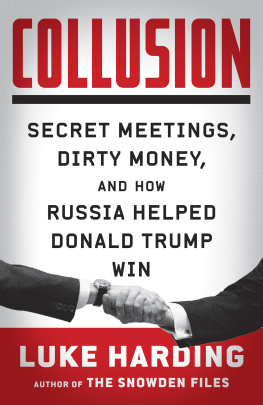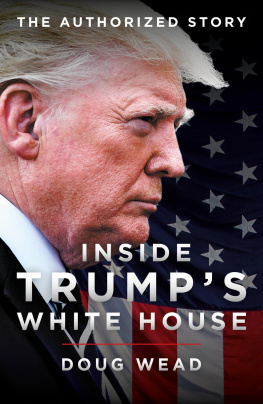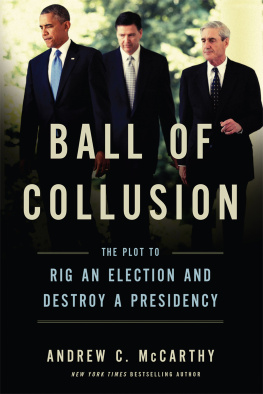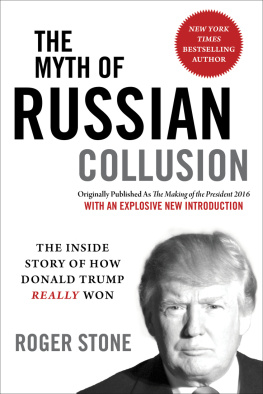Thank you for downloading this Simon & Schuster ebook.
Get a FREE ebook when you join our mailing list. Plus, get updates on new releases, deals, recommended reads, and more from Simon & Schuster. Click below to sign up and see terms and conditions.
CLICK HERE TO SIGN UP
Already a subscriber? Provide your email again so we can register this ebook and send you more of what you like to read. You will continue to receive exclusive offers in your inbox.
We hope you enjoyed reading this Simon & Schuster ebook.
Get a FREE ebook when you join our mailing list. Plus, get updates on new releases, deals, recommended reads, and more from Simon & Schuster. Click below to sign up and see terms and conditions.
CLICK HERE TO SIGN UP
Already a subscriber? Provide your email again so we can register this ebook and send you more of what you like to read. You will continue to receive exclusive offers in your inbox.

Simon & Schuster
1230 Avenue of the Americas
New York, NY 10020
www.SimonandSchuster.com
Copyright 2018 by Seth Abramson
All rights reserved, including the right to reproduce this book or portions thereof in any form whatsoever. For information, address Simon & Schuster Subsidiary Rights Department, 1230 Avenue of the Americas, New York, NY 10020.
First Simon & Schuster hardcover edition November 2018
SIMON & SCHUSTER and colophon are registered trademarks of Simon & Schuster, Inc.
For information about special discounts for bulk purchases, please contact Simon & Schuster Special Sales at 1-866-506-1949 or .
The Simon & Schuster Speakers Bureau can bring authors to your live event. For more information, or to book an event, contact the Simon & Schuster Speakers Bureau at 1-866-248-3049 or visit our website at www.simonspeakers.com.
Interior design by Paul Dippolito
Jacket design by Oliver Mundy
Library of Congress Cataloging-in-Publication Data has been applied for.
ISBN 978-1-9821-1608-8
ISBN 978-1-9821-1610-1 (ebook)
To all the public defenders
Mr. Trumps claims of no collusion are, in a word, hogwash.
Former CIA director John Brennan, August 16, 2018
AUTHORS NOTE
The index for Proof of Collusion has been published online rather than in print, because of both its size and the likelihood some readers will want to search it electronically. You can find the books index at www.sethabramson.net or http://proofofcollusionindex.com.
INTRODUCTION
A THEORY OF THE CASE
THE TRUMP-RUSSIA INVESTIGATION MAY BE the most multifaceted, wide-ranging, high-stakes federal criminal investigation in American history. It crosses continents and decades and has swept into its vortex more than four hundred people, millions of pages of financial records, and scores of unanswered questions about the state of our democracy. It has already resulted in dozens of indictments and a host of guilty pleas and prison sentences. If President Trump colluded with Kremlin agents to secure his election or to benefit his real estate empire down the road, or if he knows that any of his associates did so, it gives the Kremlin leverage over him in a way that endangers our national security and even our national sovereignty. Whatever your political views, and whatever your opinion of Donald Trump, you have a vested interest in finding out the truth about Trump-Russia collusion if you want America to be governed by the consent of the people and not the Kremlin.
In view of all this, you may be surprised to learn that, as a legal term, collusion is meaningless outside antitrust law. In lay terms, collusion is simply a clandestine agreement between two or more parties, implicit or explicit, to act in a mutually beneficial way. That collusion is always clandestine underscores that it is almost always a transgression, no matter the venue or the participants. That certain acts of collusion can violate criminal statutes means that collusive behavior is sometimes criminal behavior as well. The notion of an American politician colluding with a foreign power, let alone a hostile one, is antithetical to our values and has been since the nation declared its independence in 1776. Because foreign nationals are not permitted by U.S. law to interfere in our elections, foreign governments generally refrain from commenting on our electoral processes and certainly do not seek to contribute money or other benefits to our candidates. Doing so is a federal crime. In the few instances in which politicians have been caught receiving money or in-kind contributions from foreign entities, its been regarded as a rare scandal. Should it also be discovered that the politician and his staff reached out to that foreign entity with the aim of securing a hard-money or in-kind contribution, the scandal would become generationally significant. And should that politician be running for president, and should the nation he sought contributions from be a hostile foreign power that was waging cyberwar on Americas critical infrastructure, that generationally significant scandal would become unprecedented. In short, it is likely that the Trump-Russia story ends with Americans choosing a new archetype for American traitor besides Benedict Arnold.
Proof of collusion in the Trump-Russia case is in plain sight. When the president or his allies say there was no collusion, what they mean is that the type of collusion the president undoubtedly engaged in does not constitute a criminal offensewhether or not it constitutes an impeachable one. This latter distinction is important: Trump attorney Rudy Giuliani has taken great pains in the latter half of 2018 to say that the Trump-Russia case is predominantly a political one, and to the extent most legal scholars believe a sitting president cant be indicted, he is correct. The House of Representatives has to vote to bring charges against a president, and the Senate has to preside over his trial and find him guilty. In this current climate, there is a chance that may not happen.
That said, it so happens that much of this presidents collusion may in fact be criminal. The particular forms of collusion in which Trump, members of his family who are also political advisers, and his presidential campaign engaged may include aiding and abetting or conspiracy connected to electoral fraud, computer crimes, bribery, and money laundering, as well as acts of witness tampering, making false statements, obstruction of justice, and much more. Conspiracy occurs when two or more persons have a meeting of the minds and set as their ambition the commission of a criminal act; the federal conspiracy statute is violated when the parties take an act in furtherance of the commission of the intended crime. But the crime does not have to be committed for a violation of the conspiracy statute to be found.
In Americas system of justice, those designated to prosecute a case are obligated by the rules of professional ethics to be relentlessly zealous advocates for their position. The system doesnt work, otherwise; without zealous advocates, we might as well adopt the so-called inquisitorial system of justice employed in most of Europes courtrooms rather than the adversarial system we have here in America. To an outside observer, zealous advocacy often looks like radicalism; in fact, its a civic duty for trial advocates, and one thats emotionally and intellectually exhausting to fulfill. Thats certainly the case with my ongoing public accounting of the Trump-Russia investigation, though the work is made easier, Ill confess, by the almost historic absenceI say this advisedlyof any exculpatory evidence suggesting the president of the United States did not conspire with our enemies to violate federal law. I make that statement not as a political partisan but as an American citizen and legal professional who for many years pored over thousands of police reports, witness statements, lab results, and documentary and photographic evidence, looking for any trace of information that could exculpate my clients. I am trained, by years of experience and habit, to search for an alternative explanation besides the obvious one: that the defendant is indeed a criminal, responsible for either the charges as leveled against him or some lesser offense included in or ancillary to the ones hes currently facing. That roughly 95 percent of defendants in criminal cases in America accept responsibility for their actions and enter a guilty plea in exchange for a fair punishment is at times a testament to law enforcement and at times an indictment of our ability to give defendants the resources to adequately defend themselves; most commonly, though, it denotes a body of evidence that is overwhelmingly inculpatory.
Next page






